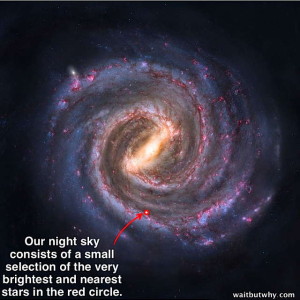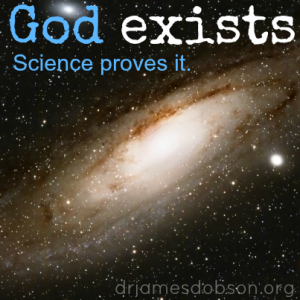Tags
Beyond the Cosmos, Christ, Christianity, Conservatism, Constitutional Republic, Dr. Hugh Ross, Everlasting, Experience, Family, Fellowship of the Minds, Freedom, Genealogy, God, Jesus Christ, Lessons, Liberty, Life, Posterity, Teaching, United States, Wisdom
Share it
From Steven Broiles … “This question truly is beyond human comprehension. How could God the Supreme Being always have existed? The answer is unknowable in this life. All I know is that the Universe—right there in front of us—is incomprehensible as it is! When I was young, being familiar with The Twilight Zone series, I wondered one day: Why am I in the body I am in? Why was I born at the time I was? Why not in some other century? Why not to some other parents? Why is God God? Why am I me? And why does God have the prior claim?
Perhaps Gabriel Marcel has a partial answer: “We are not “problems” but, actually, “mysteries.” And the only thing we can do is participate in the mystery”.
For me, the fact of a Supreme Being is not the problem: The Universe, more than 99.9% empty space, is, literally, nothing. The stars and planets in it had to have a Cause by an Intelligence. But my natural reason STOPS THERE. This Intelligence is a Divine Person. But I cannot know that from my own human reason; I can only know it by way of Revelation. And Revelation must be true, because there is nothing in Nature or mere human existence that could have dreamed it up. Participate. In. The. Mystery.”
************************************************************
Dr. Hugh Ross, and his classic Beyond the Cosmos is a permanent resident right here on my research library shelf, and has been for the past 20 years. In my honest opinion, it should be required reading for everybody in conjunction with everyday Bible study. In his own unique way, Dr. Ross has been able to conjoin the elements of faith, belief, and eternity, with the hard-based facts offered by science throughout the known Universe.
In this archived piece from April of last year, Dr. Eowyn through his Fellowship of the Minds (FOTM) brings to bear the everlasting eternal question posed by the header to this week’s SONday blog – So Who Created God? A fascinating question indeed, and one answered so very adroitly by Dr. Hugh Ross … The key phrase in this entire study is from later in the transcript, ie, an entity not constrained by time need not have been created … The exquisite beauty of true genius. I love it!
 The Ring Galaxy, with a span of 100,000 light years, is 600 million light years away from Earth. Visible in the gap (at about one o’clock) is yet another ring galaxy that likely lies even farther in the distance. [NASA]
The Ring Galaxy, with a span of 100,000 light years, is 600 million light years away from Earth. Visible in the gap (at about one o’clock) is yet another ring galaxy that likely lies even farther in the distance. [NASA]
Dr. Hugh Ross is a Christian physicist and astronomer who writes books and a terrific blog, Reasons to Believe, showing how science and Christianity can be very compatible. More than that, Dr. Ross uses science to demonstrate the truths of our Christian faith.
In his Summa Theologica, St. Thomas Aquinas (1225-1274) famously reasoned for the existence of God by pointing to “the chains of effecting causes that exist in the world. Things here are produced by their causes; these causes in turn were produced by their causes, and so on. Ultimately, there must be a first cause….”
In his post of April 7, 2014, Dr. Ross answers a very good question from a non-believer on who/what created that first cause. Here’s the question:
Hello,
Let me start by saying I’m not actually a believer at this moment. When listening to the lectures, I hear a lot of talk about the complexity of things being a big proponent for creation or design because somebody created it. But at some point in the paradigm you’re at least admitting that, somewhere, something just existed that was at least as complex as, or more complex than, us …. If we couldn’t have just existed, how could you say God just existed without something creating him. I’d like to hear your answer on that.
— Submitted by an attendee of a Reason To Believe event in San Antonio, TX
Dr. Ross gave a brilliant answer, pointing out that cause-and-effect can only happen in our Universe of space and time.
For if we say that X caused Y, X must have happened some time before Y.
But the Creator of the Universe cannot Himself be contained in that Universe. That means the Creator is outside our Universe of space and time, which in turn means that the Creator, the First Cause, is outside of time and, therefore, has no cause.
As St. Thomas Aquinas put it:
“Where there is motion, there is a mover, and ultimately a first mover, itself unmoved. This is God … Ultimately, there must be a first cause which is itself uncaused. This is God.“
Here is Dr. Ross’s answer:
Dear not-yet-a-believer,
Your question is one of the most important any human being could ask—and one that most Christians are ill prepared to answer.
As I understand your query, if explaining the natural realm’s ability to support life, especially human life, requires extreme levels of complexity and design, then would not the cause of all this complexity and design need a cause that is even greater than Him? As Richard Dawkins puts it, the problem with Christianity is accounting for who “designed the Designer?”
The question of who created God was the heart of my debate with Lewis Wolpert at Imperial College in London. (You can listen to the debate here). In a nutshell, I explained that, today, physicists across the philosophical spectrum acknowledge that the space-time theorems are unassailable. If the universe contains mass and if general relativity reliably describes the movements of bodies in the universe, the theorems are valid. Those theorems establish that space and time had a beginning at the origin of the universe. They imply that the causal agent of the universe is not subject to space and time—thus, that agent can create space-time dimensions at will.
Of course, any entity—such as the universe and everything subject to the laws and dimensions of the universe—that is constrained to a single dimension of time, where time cannot be stopped or reversed, must have a beginning. Ultimately, such entities must be traceable back to a creation event. However, an entity not constrained by time need not have been created.
The Bible declares in multiple passages that God created time (e.g., John 1:3; Colossians 1:16–17). Psalm 90 adds that God can arbitrarily compress or expand time as we know it. In my book Beyond the Cosmos (3rd edition), I include diagrams illustrating that this compression and expansion of time is only possible for beings with access to the equivalent of at least two dimensions of time. Scripture also declares that God has no beginning, no ending, and is not created (e.g., Psalm 90:2; Hebrews 7:3). These declarations could be true only of a Being who created time, rather than one who is subject to time.
Philosophers responding to Dawkins have pointed out that he made a category error. God is in a different category than the universe or humans in that He is not subject to the physical laws of the universe or to its space-time dimensionality.
************************************************************
For a more thorough answer to this question, I suggest you read Beyond the Cosmos. The book includes a description of scientific evidence for the existence of nine dimensions of space and for a Being who brought into existence ten space-time dimensions. Like yours truly, you will likely find yourself reading it over, and over, time and time and time again!
In the beginning God created the heaven and the earth. And the earth was without form, and void; and darkness was upon the face of the deep. And the Spirit of God moved upon the face of the waters. And God said, Let there be light: and there was light.
Even so, come, Lord Jesus. Amen. Maranatha. In Him!!
Sole` Deo Gloria!





 Link To DennisGHurst.com
Link To DennisGHurst.com


